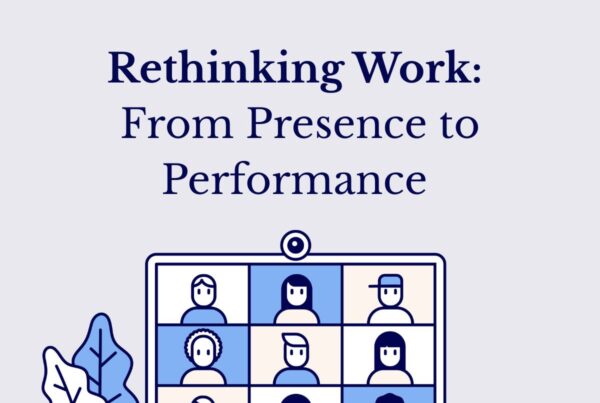A Guide to Marketing Yourself as a Marketer
These interview tips for marketing roles will help you market the most important product of all: yourself. Interviewing for marketing positions can feel like a paradox – you’re expected to be a marketing whiz, yet suddenly you’re marketing you.
As a recruitment agency specialising in sales and marketing roles, we interview dozens of marketing candidates every week. After hundreds of these conversations, one thing has become crystal clear: the candidates who succeed follow the key interview tips for marketing roles that set them apart from the rest.
They know they are the product.
So if you’re tired of getting to final rounds only to hear “we went with someone else,” or if you want to stand out in a sea of similar-looking CVs, this guide is for you. Here’s our tips on exactly how to nail your next marketing interview.
Lead with Revenue Stories, Not Campaign Stories
This is where most candidates go wrong right out of the gate.
What most candidates say: “I ran a really successful social media campaign that generated 50,000 impressions and had amazing engagement rates…”
What actually gets you hired: “I identified an untapped customer segment through social listening, which led to a targeted campaign that generated €300,000 in new business over six months…”
See the difference? One focuses on marketing metrics, the other focuses on business outcomes.
Here’s the thing – hiring managers don’t really care about your impressions, click-through rates, or how creative your campaign concept was. What they care about is whether you can move the needle on what matters to the business: revenue, growth, and profit.
So start every story with the business impact first. The creative execution can come second.
Speak Their Language (Hint: It’s Not Marketing-Speak)
This is huge, and it’s something we see trip up even experienced marketers. You need to translate your marketing wins into CEO-speak.
Instead of saying: “We increased brand engagement by 40% across all channels” Say this: “We reduced customer acquisition cost from €200 to €120 per customer while maintaining quality”
Instead of saying: “I built strong thought leadership positioning for our executives” Say this: “I generated €2M in pipeline through content that positioned us as category experts and drove inbound leads”
The first examples sound like marketing fluff. The second examples sound like business results. And guess which one gets you hired?
Come Prepared with Your Own Market Analysis
This is where you can really separate yourself from other candidates.
Don’t just show up hoping they’ll explain the role to you. Instead, demonstrate that you’ve already started thinking strategically about their business:
- Research their main competitors and identify positioning gaps
- Analyse their current marketing approach and spot improvement opportunities
- Look at their customer journey and find potential friction points
- Check out their content strategy and see where you could add value
When you walk into that interview armed with genuine insights about their business, you’re not just another candidate anymore. You’re a consultant who’s already adding value before you’ve even been hired.
Ask Questions That Prove You Get the Business
The questions you ask in an interview are just as important as the answers you give. Maybe more important.
Most candidates ask safe, generic questions that could apply to any role at any company. But smart candidates ask questions that demonstrate strategic thinking.
Weak question: “What does success look like in this role?” Strong question: “What’s your current customer lifetime value, and where do you see the biggest opportunity to improve it?”
Weak question: “Can you tell me about the team structure?” Strong question: “How closely does marketing work with sales on pipeline acceleration, and what’s the current handoff process?”
Weak question: “What are the main challenges facing the team?” Strong question: “What percentage of your leads currently convert to customers, and how does that compare to your industry benchmark?”
See how these questions immediately signal that you think like a business person, not just a marketer?
Present Yourself Like a Growth Investment
Here’s something most candidates get completely wrong: they spend the entire interview talking about what they’ve done in the past, instead of projecting what they’ll deliver in the future.
Don’t just list your previous accomplishments. Paint a picture of the value you’ll create:
“In my first 90 days, I’d audit your current funnel conversion rates, benchmark them against industry standards, and present a plan to increase qualified leads by 25%. Based on your current average deal size, that would represent approximately €500K in additional pipeline.”
Be specific, be measurable, be confident.
This approach transforms you from “someone with marketing experience” into “a strategic investment that will pay for itself.”
The Reality Check
Ultimately, the uncomfortable truth that nobody likes to talk about is:
The truth is, if you can’t articulate your marketing impact in business terms during an interview, why should they believe you can do it in the role?
Every single successful marketing hire we’ve placed this year could confidently answer this question: “How did your work directly contribute to company growth?”
They didn’t talk about brand awareness or engagement rates. They talked about revenue generated, costs reduced, customers acquired, and deals closed.
Your Next Steps
Remember, before your next marketing interview, take some time to reframe your biggest wins in business terms. For each major accomplishment, ask yourself:
- How did this impact revenue?
- What was the measurable business outcome?
- How would I explain this to a CEO who doesn’t care about marketing metrics?
Ready to put this into practice? The next time someone asks you what you do, don’t say “I’m a digital marketer” or “I work in content marketing.” Instead, try: “I help companies grow revenue through strategic customer acquisition.” See how different that feels?
These interview tips for marketing roles aren’t just about answering questions – they’re about showing that you’re not just a marketer applying for a job. You’re a growth catalyst presenting an investment opportunity.
And the companies that recognise that? Those are the ones that will fight to hire you.








